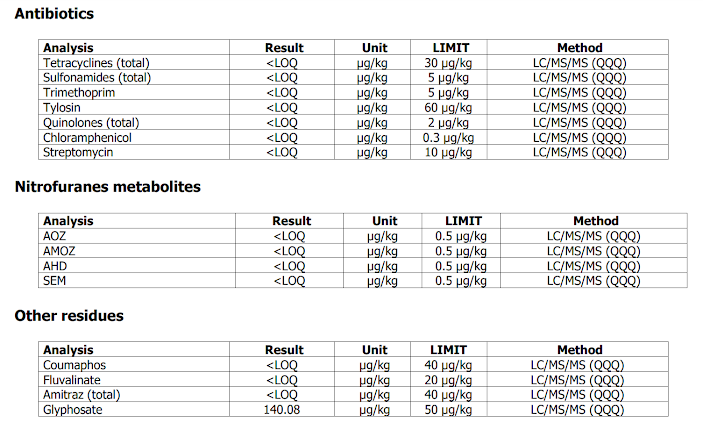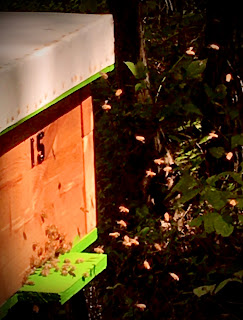Mayberry's Diversified Farming Community
Andy Griffith, known to many of us as Sheriff Andy Taylor of Mayberry, passed away on July 3 at the age of 86. As a boy growing up in Kentucky, every Monday night was a highlight of the week as that was when the “Andy Griffith Show” aired on TV. Starting October 3, 1960, shortly after I turned four years old, it continued to air until April 1, 1968, by which time I was almost twelve years old. Forty-four years later, I continue watch it whenever I can,whether in TV reruns, via the Internet, or by DVD. I can honestly say that my childhood was in many ways defined by Sheriff Taylor and the good people of Mayberry, as I and my family gathered every Monday evening to watch the latest goings-on in a fellow southern community.
Although I did not understand or appreciate it at the time, the values and lessons taught and lived in Mayberry strongly reinforced what my parents and Sunday School teachers tried to teach me. It is hard to say that today’s television programming does the same. While so many of today’s programs undermine the morality and ethics that many parents try to teach their children, “The Andy Griffith Show” and many others of that time were part of that village that it takes to raise a child.
In recent years, I have noticed especially how Mayberry and the surrounding community lived the principles of sustained, diversified, community-based agriculture. Modeled on the traditional farming methods of earlier decades, the farms in and around Mayberry did not indulge in monoculture farming, they did not rely on chemicals and technology, and the methods were mainly organic, free-range, and pasture-based. This approach was, of course, “normal” at that time. It was “conventional” and so-called “organic” farming hardly even existed. The “non-conventional” farming was the radical approach, sprouting such new ideas as monocultures based on the commodities market, dependent on technology and purchased inputs, and relying on hired labor instead of family.
One episode I especially remember aired on April 17, 1961. In this episode, Miss Ellie (the druggist) decides that she is going to give a farm girl, Francine Flint, a makeover against the wishes of the girl’s father. As the only child in the family, Francine grows up helping her father with all the farm work and never had the chance to learn about make-up or to own dresses. Ellie and Andy visit the farm to talk to Mr. Flint, who eventually gives in when he sees the young men from the next farm showing romantic interest in her.
Their visit to the farm is interesting because of the way this farm is depicted. The young men are putting up hay in the next field, while various animals run free on the Flint farm. Chickens and other fowl are free-ranging, cows are grazing, and only small tractors are seen. The farms are well-kept and the fences and outbuildings are in good repair. Clearly, these farmers are making a decent living on smaller farms, as evidenced by the lack of large machinery. The animals are not confined but are foraging freely for food, there are no feedlots in evidence, and the barn is light and airy with animals mixing freely.
In another episode, which aired on November 12, 1962, Deputy Barney Fife confronts two farmers who are selling produce off the back of their truck just outside of town. Much like our farmers’ markets of today, these two farmers have a wide range of produce on their truck, which they are selling directly to the consumers. No middle-man, no processing by industrial producers, no additives, and in all likelihood organic simply because that was the way most food was grown at the time.
Two other episodes remind us of how townspeople lived closer to the land than now. On December 5, 1966, Aunt Bee spends a long time developing a special rose for the annual Mayberry Flower Show. In this and other episodes, we see Aunt Bee as a gardener, relying on her small garden for fresh vegetables and flowers, a practice that is clearly common among her friends.
Similarly, the March 6, 1967, episode shows Walt Simpson, the old milkman, retiring his horse, Dolly, because he has purchased a small truck for deliveries instead of using the horse-drawn cart he has used for years. Opie decides to care for her so she will not be sent to the glue factory, but cannot get her to eat because she misses her route so much. Walt finally takes her back and ties her to the truck so she can continue making her rounds as she always did. Again, we see an example of locally-sourced food, this time a small, local dairy that is delivering fresh (and probably raw!) milk daily to customers and the sellers having a close relationship with the buyers.
So in the idealized world of Mayberry, a small, Southern town whose antics and citizens continue to be followed by people every day, we see the kind of sustainable, diversified, locally-based food economy toward which so many of us are working today. Is this nothing more than a throwback to the past? Or nostalgia? Is it regression and not progress? Certainly the industrial food corporations and the “Ag Big Five” will tell you it is, but in Sheriff Taylor’s community there were many farmers who could make decent livings on their small farms and the people relied heavily on real food, recently harvested, that did not travel far to get to their tables. This is what “conventional” should be - not the radically restructured farming of more recent decades.
We will miss Andy Griffith and the world he and his fellow citizens represented. But the values they upheld and the lifestyle they proffered is not something we have to miss. Although some people may see Mayberry as a collection of “rubes” or “hayseeds,” many more of us see that idealized town as representing a way of life we lost, but need desperately to get back, and a snapshot in time that has much to teach us as we try to get back to the core values and practices that made America great.
Rest in peace, Andy. Thank you for bringing us Mayberry and its values and for continuing to bless us today, more than fifty years later. We will miss you.
Michael McClellan
Proprietor
Irish Acres Organic Farm
Anna, Kentucky

